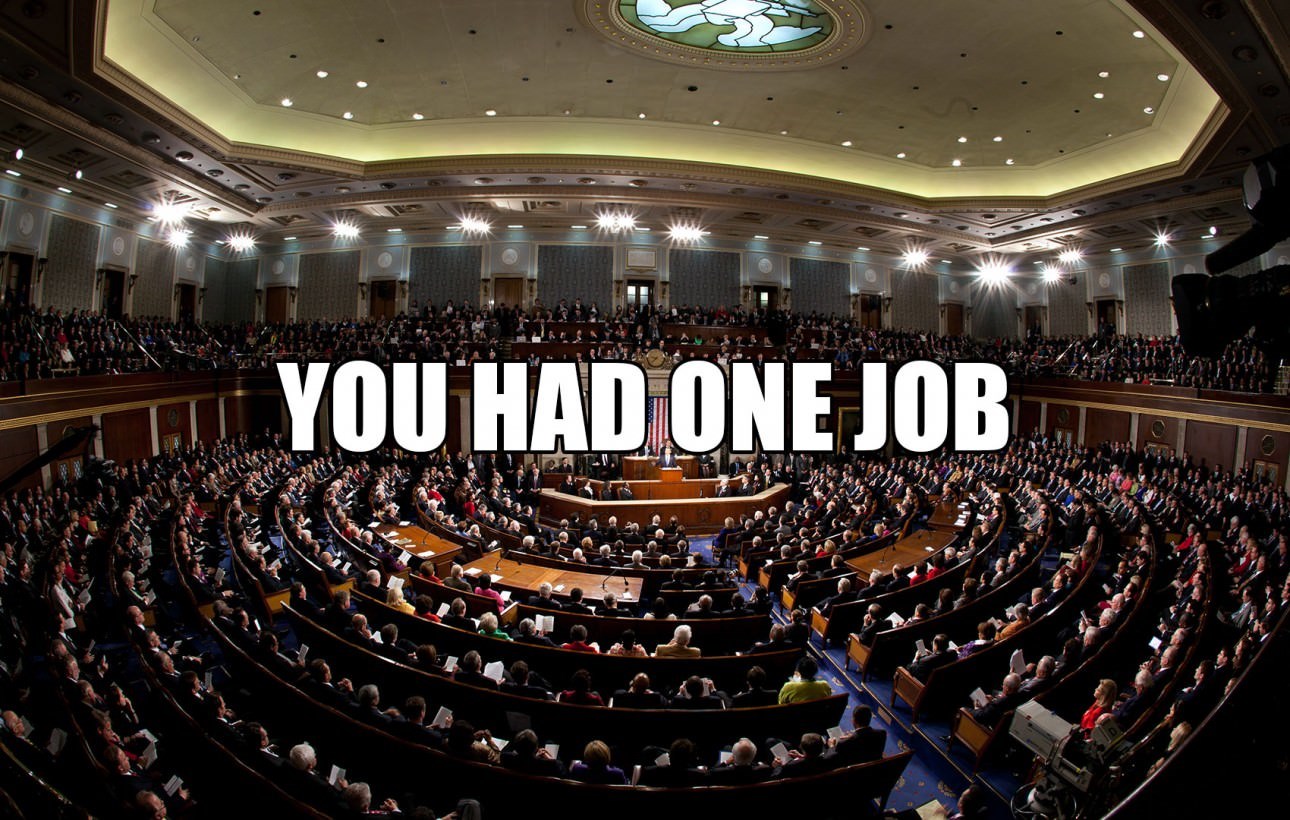Whatever You Call This Health Care Mess, It’s Not Insurance
The House of Representatives has just passed a statute it represents as “repealing and replacing Obamacare.” This legislation, now awaiting what promises to be major challenges in gaining the Senate’s approval, does amend certain aspects of the Obamacare setup, but all in all the changes are less than earth-shaking, and the previous system will continue in important regards even if the House version should gain approval in the Senate.
Preexisting Conditions

One critical aspect of the continuity is the requirement that, absent certain state-level options that might but need not be implemented, health-care insurers will still be forbidden to deny coverage to anyone because of a preexisting condition.
Under Obamacare, insurers had to charge people the same amount, regardless of their health status. The AHCA [American Health Care Act] would change that, allowing states to apply for waivers to charge sicker people more if those people had a gap in their insurance coverage. Those states would then get $138 billion over 10 years to help defray costs for sick people by creating high-risk pools, among other things.
The idea behind this provision is that it would make health insurance cheaper for people who are relatively healthy, while sick people would be in their own, subsidized risk pool. As they debated on the House floor Thursday, Republican members consistently assured their audience that their bill would still protect preexisting conditions. (source)
As many knowledgeable commentators have noted over the years, forbidding insurers to discriminate among people according to their health condition (e.g., according to what types of illnesses, injuries, and risk factors they have had in the past or have currently) flies in the face of the insurance principle.
The Insurance Principle
Insurance is a means of pooling risks. Subscribers of an insurance policy all pay a regular premium for coverage. In the event that a subscriber happens to fall victim to a covered contingency – for example, someone develops lung cancer – that person will be eligible to make a benefit claim against the insurance to pay for care of the cancer.
Such coverage can be actuarially sound because even though any one person’s coming down with lung cancer is unpredictable, the probability of someone’s coming down with this disease in a large population can be determined with a high degree of accuracy, and premiums can be set so that for the group as a whole, the premiums will suffice to cover the plan’s promised pay-outs and leave enough for the insurer to cover its costs and earn a normal return on its investment in the insurance business.
If, however, people who had not been insured could, upon being diagnosed with a particular disease, then apply for insurance covering treatment of this condition, the insurance principle would be cast into the trash bin. This feature would be similar to letting people on their death bed purchase life insurance at the same rate as healthy people, or letting people whose houses had just caught fire purchase homeowner’s insurance at the same rate as people whose houses are in sound condition.
In short, requiring insurers to cover preexisting conditions at the same premium paid by covered subscribers who do not have those conditions transforms insurance into an arrangement for making healthy people pay too much for coverage in order to subsidize people who pay too little – because the law forbids insurers to charge them according to the risk of the covered contingency they actually present.
Likewise, requiring insurers to cover a wide range of conditions against which some subscribers do not wish to insure – indeed, against certain contingencies that cannot apply to them in any event (e.g., costs associated with pregnancy for male subscribers) – turns the insurance system into a complex system of overcharges and cross-subsidies, that is, turns the system into a legally prescribed welfare system rather than an insurance system.
Stop Calling It ‘Insurance’
The federal government and the state governments have intervened haphazardly in the health-care insurance business so pervasively and for so long that by now the whole setup is nothing but a gigantic mess that flies in the face of the insurance principle and dictates a host of requirements that make no sense except as answers to the prayers of special-interest groups and rent seekers.
Once a net benefit has been created, however, each beneficiary group will scream to the heavens if reforms should threaten to remove its privilege, and legislators will be reluctant to buck such organized political insistence on continued subsidies and privileges no matter how irrational these interventionist distortions are as components of an insurance system.
This sort of “transitional-gains trap,” which Gordon Tullock analyzed astutely in an article published almost fifty years ago, produces an inertia in the political process that makes it practically impossible to make substantial changes even as the overall system sinks into financial ruin and drags down much of the related economy with it.
A helpful first step toward actually remedying the whole ungodly mess would be to change the language we use to talk about it and to propose reforms. People would be well advised to stop using the word “insurance” to talk about what amounts to prepaid care for one and all, and to stop regarding every special-interest subsidy and privilege as if, having once been blessed by legislators, it has become an eternal “right.”
If people cannot forthrightly recognize gifts financed from the public trough as distinct from real insurance payouts, there is little chance that any reforms can ever make economic sense or bring about a viable system for financing health-care expenses.
Reprinted from the Independent Institute.
Robert Higgs
Robert Higgs is Senior Fellow in Political Economy for the Independent Institute and Editor at Large of the Institute’s quarterly journal The Independent Review.
He is a member of the FEE Faculty Network.
This article was originally published on FEE.org. Read the original article.


